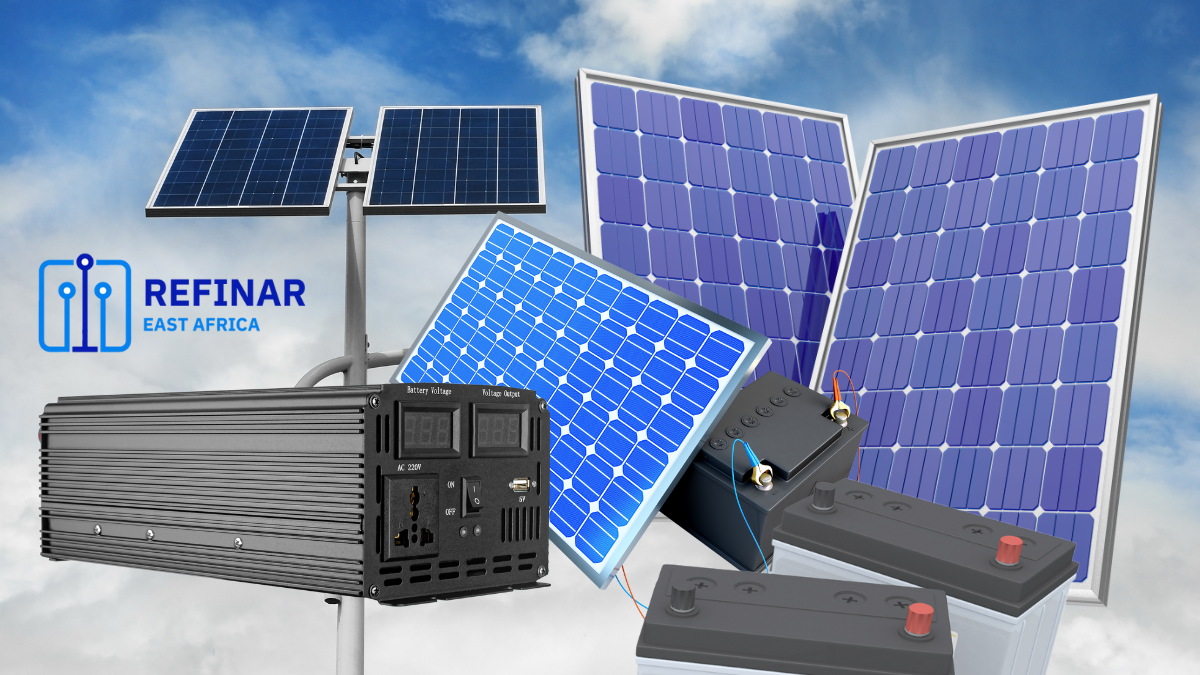Do you want to use solar energy but are intimidated by the complex calculations required to set up the correct solar panel, battery, and inverter system? Understanding the fundamentals of this calculation method will substantially simplify your journey toward a more efficient and cost-effective solar setup. Let’s go into the specifics so you can make smart choices.
Understanding Solar Energy Requirements
Understand the basics of your energy needs before getting into the finer points of figuring out how many solar panels, batteries, and inverters you’ll need. Evaluate how much energy you use each day to start. This includes analyzing the way you use electricity, determining the times of day when consumption peaks, and calculating the total amount of power you use each day.
Calculating Solar Panel Capacity
Determining the adequate solar panel capacity revolves around your daily energy consumption and the amount of sunlight your location receives. You can calculate this by employing the following formula:
Solar panel capacity (in watts) = Daily energy consumption (in watt-hours) / Sunlight hours per day
Ensuring the right number of panels with the appropriate wattage ensures optimal energy production, meeting your electricity needs efficiently.
Assessing Battery Requirements
Selecting the right battery size hinges on storing surplus energy generated by your solar panels for later use, especially during periods of low sunlight or at night. To determine the battery capacity needed, you can utilize this formula:
Battery capacity (in amp-hours) = Daily energy consumption (in watt-hours) x Days of autonomy / Battery voltage
Remember, ensuring a battery capacity that aligns with your energy consumption and period of autonomy is pivotal for an uninterrupted power supply.
Types of Batteries for Solar Applications
- Lead-Acid Batteries: Affordable but require regular maintenance.
- Lithium-Ion Batteries: Long-lasting and efficient, but relatively expensive.
- Saltwater Batteries: Environmentally friendly and low maintenance.
Sizing the Inverter
The inverter plays a pivotal role in converting direct current (DC) from solar panels into alternating current (AC) for household use. Sizing the inverter involves considering the maximum load it will support and ensuring it aligns with your total wattage requirements. An oversized or undersized inverter can adversely affect system efficiency.
Significance of Inverters in Solar Setups
Inverters play a crucial role in maximizing energy harvest and ensuring compatibility between the solar system and electrical appliances.
Selecting the Right Inverter
Different types of inverters, such as string inverters, microinverters, and hybrid inverters, offer unique functionalities. Understanding the specific requirements and limitations of each type is essential for optimal system performance.
Ensuring Compatibility and Efficiency
Ensuring compatibility among solar panels, batteries, and inverters is vital for a seamless and efficient solar system. Matching the specifications and ensuring proper installation significantly impacts the overall performance.
Buying a Complete Solar Power Kit
Buying a complete solar kit is smart because:
- Compatibility & Ease: It saves you from the headache of matching parts and is great for beginners.
- Cost Savings: Bundled kits usually come at lower prices than buying each piece separately.
- Convenience: Everything you need is in one package – solar panels, batteries, cables, etc. No need to hunt for individual parts
If you’re considering investing in a solar power kit, Refinar East Africa stands out as the top-choice brand for supplying and installing complete solar power systems. We provide comprehensive solutions tailored to your energy needs. You can connect with us at 0707075702 or via email at info@refinareastafrica.com to explore our range of offerings and expert installation services. Let Refinar East Africa be your partner in harnessing the potential of solar energy for your home or business.
FAQs
1. How do I determine the right number of solar panels for my needs?
Estimating your load wattage and considering the average daily sunlight received aids in determining the required number of solar panels.
2. Why is battery storage important in a solar power system?
Battery storage ensures energy availability during periods of low or no sunlight, enhancing the system’s reliability.
3. Can I oversize my power inverter?
Oversizing slightly is acceptable, but excessively high-rated inverters may lead to inefficient power conversion.
4. What are the advantages of purchasing a complete solar kit?
Complete kits offer convenience, and compatibility assurance, and often come at discounted prices compared to purchasing individual components separately.
5. How critical is charge controller selection in a solar system?
Charge controllers prevent battery damage due to overcharging and ensure optimal energy flow between panels and batteries.


